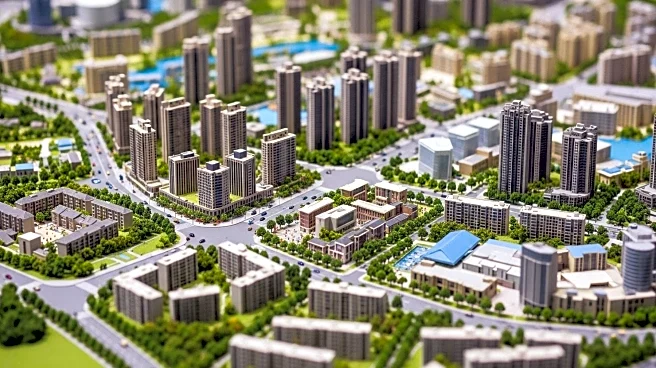What's Happening?
Microlandia, a new city builder game developed by explodi, aims to provide a 'brutally honest' simulation of urban management challenges. Unlike traditional city-building games, Microlandia incorporates real-world data from sources such as the World Bank Open Data and the U.S. Bureau of Labor Statistics to model its gameplay. Players face realistic economic and social issues, such as high road construction costs, traffic jams leading to job loss, and housing shortages resulting in increased rents. The game also simulates the consequences of corporate bankruptcies and the impact of aging populations on city budgets. Microlandia challenges players to manage these complexities while maintaining a fun gaming experience.
Why It's Important?
Microlandia's approach to city-building games is significant as it introduces players to the intricate realities of urban planning and management. By using real-world data, the game educates players on the economic and social dynamics that affect cities, such as housing affordability, employment, and public services. This can lead to a greater understanding of urban issues among the gaming community and potentially influence public discourse on city management. The game's realistic portrayal of challenges like poverty and corporate influence may also encourage players to think critically about solutions to these problems in real life.
What's Next?
Microlandia is currently in the early stages of development, with a beta version available on Itch for players to experience its detailed simulation. As the game progresses, it may incorporate additional features and data sources to enhance its realism. The development team may also seek feedback from players to refine the gameplay and address any issues. The game's release could spark discussions among urban planners, educators, and policymakers about the use of simulations in understanding and solving real-world urban challenges.
Beyond the Headlines
Microlandia's simulation raises ethical questions about the portrayal of poverty and homelessness in gaming. By making these issues a central part of the gameplay, the game challenges players to confront uncomfortable truths about urban life. This could lead to discussions on the role of games in social education and the potential for gaming to influence public policy. Additionally, the game's focus on corporate influence and economic disparities may prompt players to consider the broader implications of capitalism and governance in urban settings.










